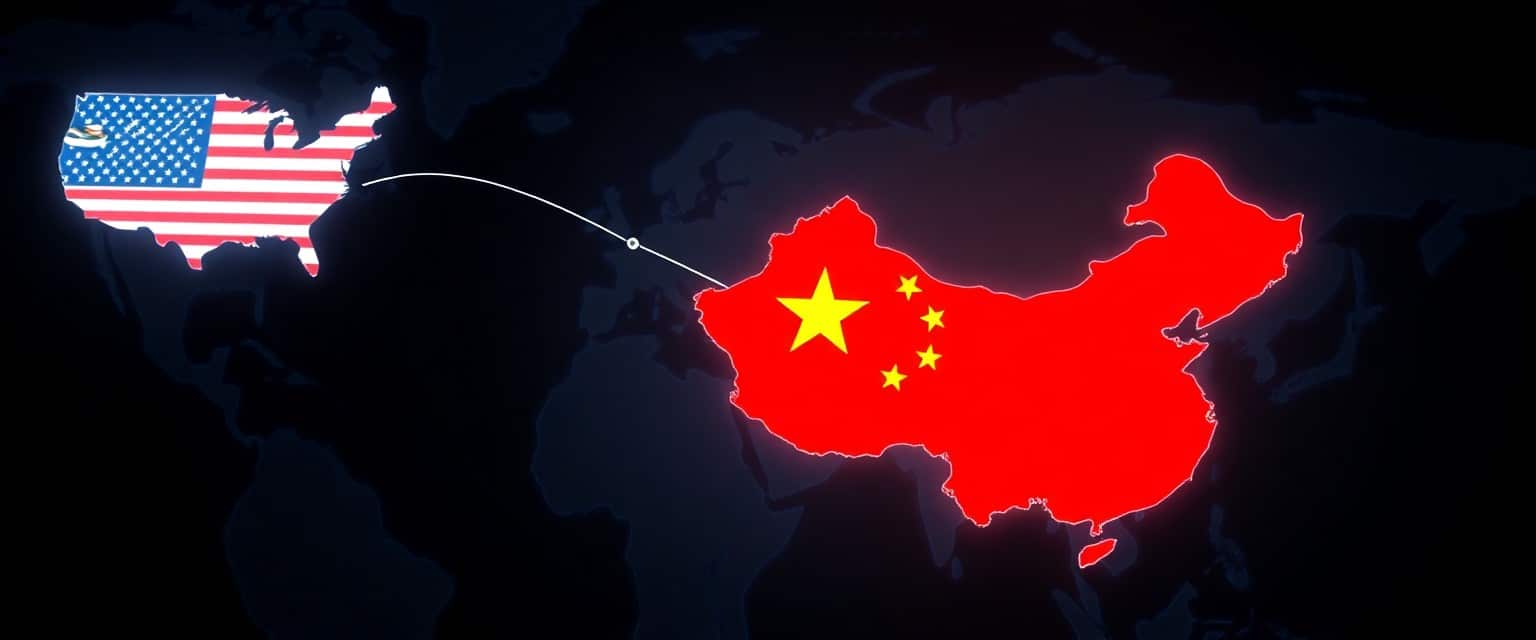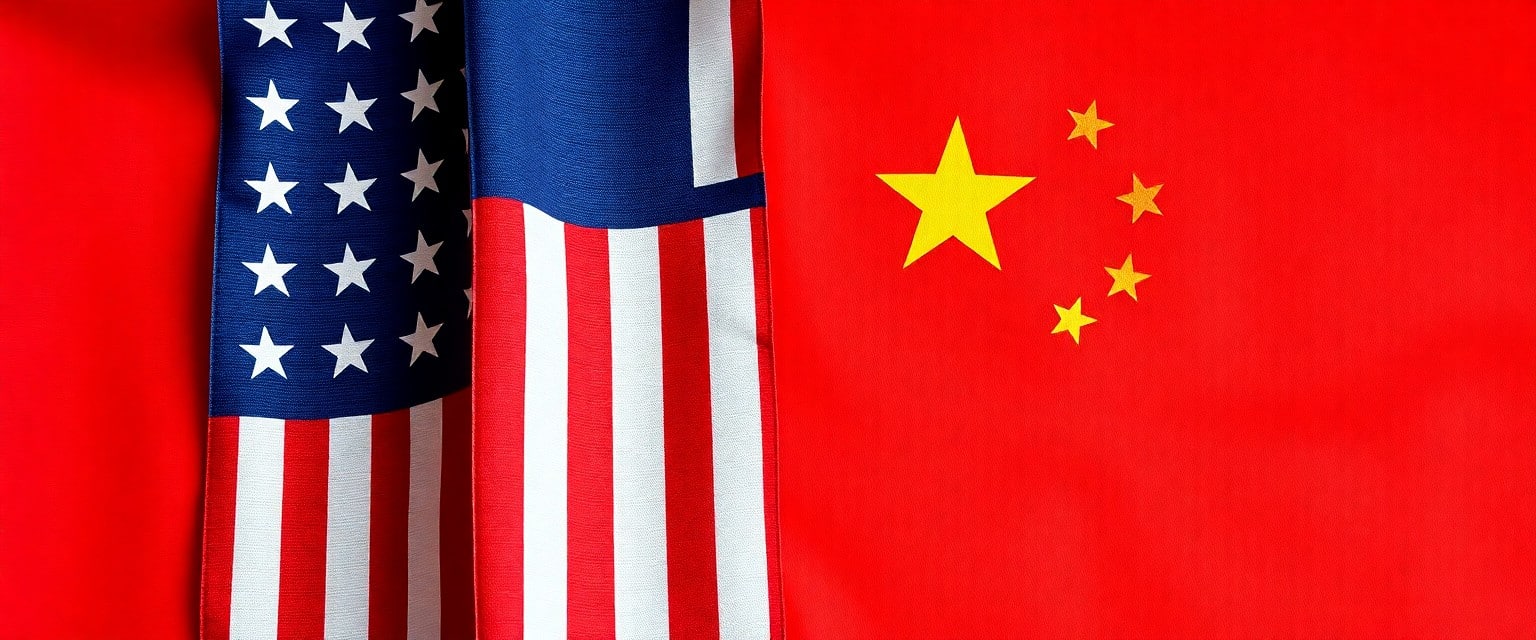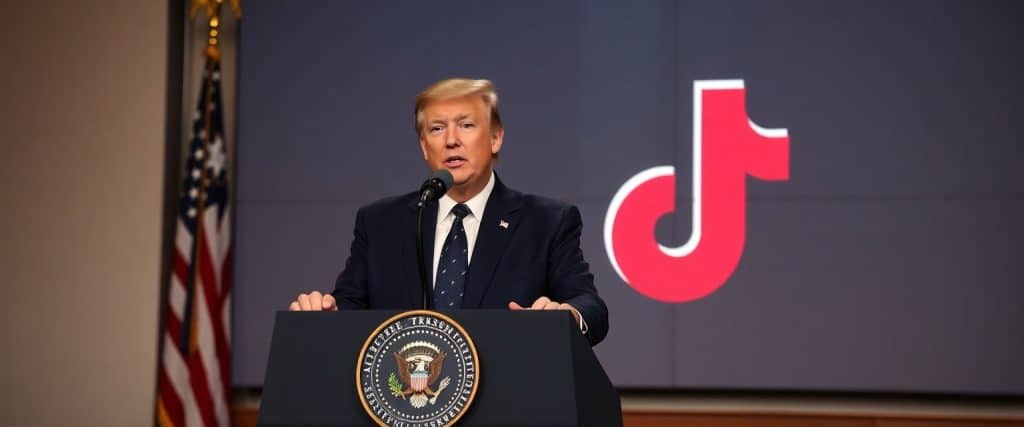Over recent months, you have likely followed the ongoing negotiations surrounding TikTok’s future in the U.S. Now, President Trump has announced significant progress on a deal for an American company to acquire TikTok’s U.S. assets, with plans to engage in talks with China this week. This development could impact your access to the app, as well as the broader landscape of U.S.-China tech relations. The deal aims to balance national security concerns with economic opportunity, so staying informed on these updates will help you understand how this affects your digital experience and market dynamics.
Progressing the TikTok Deal: Key Statements from Trump
Recent developments suggest the TikTok divestiture is moving steadily forward, with President Trump emphasizing significant progress in securing a U.S. buyer for the app’s American operations. Your understanding of the situation sharpens as the President highlights not only the near-finalized deal but also the upcoming critical diplomatic conversations aimed at gaining China’s approval. These statements reveal a strategic balancing act that weighs regulatory concerns, geopolitical relations, and the protection of user data while aiming to preserve TikTok’s status in the U.S. market.
Trump’s Announcement on Acquisition
President Trump confirmed that the U.S. has “pretty much” reached an agreement for an American company to acquire TikTok’s U.S. assets, pointing to “very wealthy people” as the prospective buyers. This acquisition, he emphasized, would require the green light from China, but Trump expressed confidence that President Xi Jinping would approve the deal, framing it as mutually beneficial for both countries’ interests.
Anticipated Discussions with China
Talks with China are expected to commence early this week, possibly involving President Xi or his key representatives. These discussions are aimed at finalizing terms and securing Chinese approval, seen as crucial for the deal’s successful closure and TikTok’s continued U.S. presence.
The upcoming dialogue will likely address sensitive questions surrounding data security and operational control, considering the Chinese government’s past refusal to approve similar deals citing trade tensions linked to U.S. tariffs. Your attention to these talks is warranted, as they will set the tone for future regulatory frameworks governing foreign-owned digital platforms in the U.S., while balancing national security concerns with economic and technological interests on both sides.
Navigating the Political Landscape: Implications of the TikTok Ban
The TikTok ban underscores a complex interplay between national security priorities and economic interests. You see a balancing act where the government seeks to protect user data from potential exploitation while fostering a vibrant tech economy. The evolving deadlines and repeated extensions reveal how sensitive negotiations with China shape policy decisions. This uncertainty affects not only TikTok’s 170 million U.S. users but also investors and businesses monitoring cross-border tech collaborations amid broader geopolitical tensions.
Domestic Concerns and National Security
Your concerns about data privacy reflect Congress’s bipartisan push to limit foreign influence in U.S. tech. The Protecting Americans from Foreign Adversary Controlled Applications Act enforces a nine-month deadline for ByteDance to either divest U.S. TikTok operations or face app removal. Lawmakers highlight the potential weaponization and mass data collection risks, justifying the extended ban and ongoing scrutiny of TikTok’s U.S. presence amid growing AI competition with China.
International Relations and Trade Dynamics
Negotiations over TikTok’s U.S. operations directly impact U.S.-China relations, signaling broader trade and diplomatic challenges. President Trump’s planned talks with China reflect a strategic attempt to align tech ownership with national interests while maintaining bilateral goodwill. The Chinese government’s reluctance to separate ByteDance due to tariff disputes illustrates how trade policy interlocks with tech regulation, complicating efforts to resolve the app’s future.
The TikTok deal sits at the intersection of escalating U.S.-China trade tensions and diplomatic maneuvering. Chinese officials’ resistance to an American spin-off, citing prior tariffs, shows how retaliatory trade measures can stall tech negotiations. Your understanding deepens when you consider this deal as part of a larger pattern where technology becomes leverage in trade wars. U.S. attempts to secure a “fair deal” depend on resolving tariffs and mutual trust, with President Trump banking on his personal rapport with President Xi to navigate these complex negotiations. This unfolding saga illustrates how trade dynamics and national security concerns converge, affecting global markets and innovation trajectories.
The Potential Impact on U.S.-China Relations
This TikTok deal arrives at a delicate moment in U.S.-China relations, offering a potential avenue to ease tensions while setting a precedent for future tech negotiations. With ByteDance’s divestment deadline extended for the third time, both countries appear willing to find common ground. The deal could signal a new phase of cooperation or exacerbate strategic competition depending on how regulatory and security concerns are managed. Your understanding of this evolving dynamic is key, as it may influence broader trade policies and technological exchanges between the world’s two largest economies.
Economic Benefits and Risks of the Deal
You should weigh the economic advantages of preserving TikTok’s U.S. user base and its advertising revenue against potential risks like data security and market control. With around 170 million active U.S. monthly users, the app generates significant economic activity and jobs, but concerns about user data being accessed by Beijing remain pronounced. The deal’s success depends on balancing these financial benefits with safeguards to protect national security and maintain investor confidence.
Strategic Negotiations: The Role of President Xi
President Xi Jinping’s involvement may ultimately determine the fate of the TikTok deal, given Beijing’s control over ByteDance and its “secret golden share” rights. Xi’s willingness to approve the American acquisition will depend on broader trade considerations, including the status of U.S. tariffs and bilateral cooperation. You should note that Xi’s decision will likely reflect China’s strategic priorities in retaining influence over its tech assets while navigating pressure to comply with foreign regulatory demands.

Understanding the Ownership Controversy: The Role of ByteDance
ByteDance, TikTok’s Chinese parent company, stands at the center of significant U.S. scrutiny. Concerns over its ownership stem from potential data privacy risks and the Chinese government’s influence over technology firms. Despite TikTok’s global popularity, its connection to ByteDance creates complex geopolitical tensions, especially as U.S. lawmakers worry about how user data could be accessed or exploited. The latest deal attempts to sever this link by transferring U.S. assets to American investors, yet ByteDance’s continued minority stakes and overall control remain contentious points in negotiations and regulatory reviews.
Regulatory Challenges Faced by TikTok
The regulatory landscape for TikTok is shaped by bipartisan legislation aimed at protecting national security and user privacy. The Protecting Americans from Foreign Adversary Controlled Applications Act forced TikTok to either divest from ByteDance or face removal from U.S. app stores by September 2025. You’ll find that this legislation establishes firm timelines and threatens severe operational disruptions, underscoring why TikTok’s future in the U.S. hinges on swift compliance and transparent ownership restructuring.
The Significance of the ‘Golden Share’ Concept
The so-called ‘golden share’ is a specialized mechanism that could grant Beijing veto power over TikTok’s strategic decisions, even after a U.S. sale. This type of share enables a minority stakeholder to block changes that conflict with its interests. For you, this means that despite apparent divestment, China could retain influence over TikTok’s operations, fueling ongoing fears about control and data security in the U.S. market.
Delving deeper, the ‘golden share’ concept allows Chinese authorities to maintain indirect leverage without majority ownership—an arrangement that complicates trust and regulatory approval. For example, if China holds this share, it can approve or reject operational changes, mergers, or technology integrations that concern national security. This subtle but powerful control structure could undermine efforts to fully decouple TikTok’s U.S. presence from Beijing, making the ongoing negotiations far more intricate than a simple asset sale.
Broader Economic Ramlications: TikTok’s Market Position
The potential acquisition of TikTok’s U.S. assets carries significant economic weight, given the app’s 170 million active monthly users and its impact on digital advertising. Securing TikTok under American ownership could reshape market dynamics by fostering greater competitive balance in the social media space. You can expect shifts in ad spending patterns as major brands leverage TikTok’s reach without facing geopolitical risks tied to Chinese control. The deal’s approval may also influence investor confidence in technology stocks influenced by U.S.-China relations, signaling a new chapter of cautious yet optimistic engagement.
Consumer Trends and User Engagement Statistics
TikTok’s user engagement remains robust, with average daily usage exceeding 80 minutes for many consumers, underscoring its dominance in short-form content. Younger demographics, particularly Gen Z and millennials, drive this trend, valuing the platform’s interactive video formats and algorithmic personalization. You’ll notice brands increasingly tailor campaigns to this behavior, using TikTok’s viral potential to amplify reach. Despite ongoing regulatory pressures, user growth in the U.S. has stayed steady, reflecting deep-rooted consumer preferences that any ownership transition must carefully preserve to avoid eroding loyalty.
The Future of Social Media amid Regulatory Scrutiny
Heightened regulatory scrutiny over data privacy and foreign ownership is reshaping the social media landscape, pushing platforms like TikTok toward structural changes. You’ll see greater emphasis on transparency and localized data governance as governments demand safeguards against misuse. This pressure may accelerate innovation in privacy-focused features and compliance-driven business models, altering how social media companies operate globally.

Summing up
Hence, you should be aware that President Trump has indicated significant progress toward a deal for an American company to acquire TikTok’s U.S. operations, with planned discussions with China expected this week. This potential agreement aims to address national security concerns while keeping TikTok accessible to its 170 million U.S. users. You can anticipate ongoing developments as both governments negotiate approval, influencing the app’s future and broader U.S.-China tech relations.
Frequently Asked Questions
What is the current status of the TikTok deal?
President Trump announced that the United States has “pretty much” reached a deal for an American company to acquire TikTok’s U.S. operations. Talks with China are set to begin early next week to finalize the agreement.
When are the talks with China scheduled?
The negotiations are planned to commence on Monday or Tuesday, with discussions potentially involving President Xi Jinping or his representatives.
What is the deadline for ByteDance to divest TikTok’s U.S. operations?
The deadline has been extended to September 17, 2025, providing ByteDance additional time to complete the sale and comply with U.S. regulations.
Who are the potential buyers for TikTok’s U.S. operations?
While specific buyers have not been disclosed, President Trump mentioned that a group of “very wealthy people” is interested in acquiring TikTok’s U.S. assets. The identities of these buyers are expected to be revealed in the coming weeks.
What are the implications of this deal for U.S.-China relations?
The outcome of the negotiations could impact trade relations between the U.S. and China, with the TikTok deal serving as a significant point of discussion in broader economic talks.

